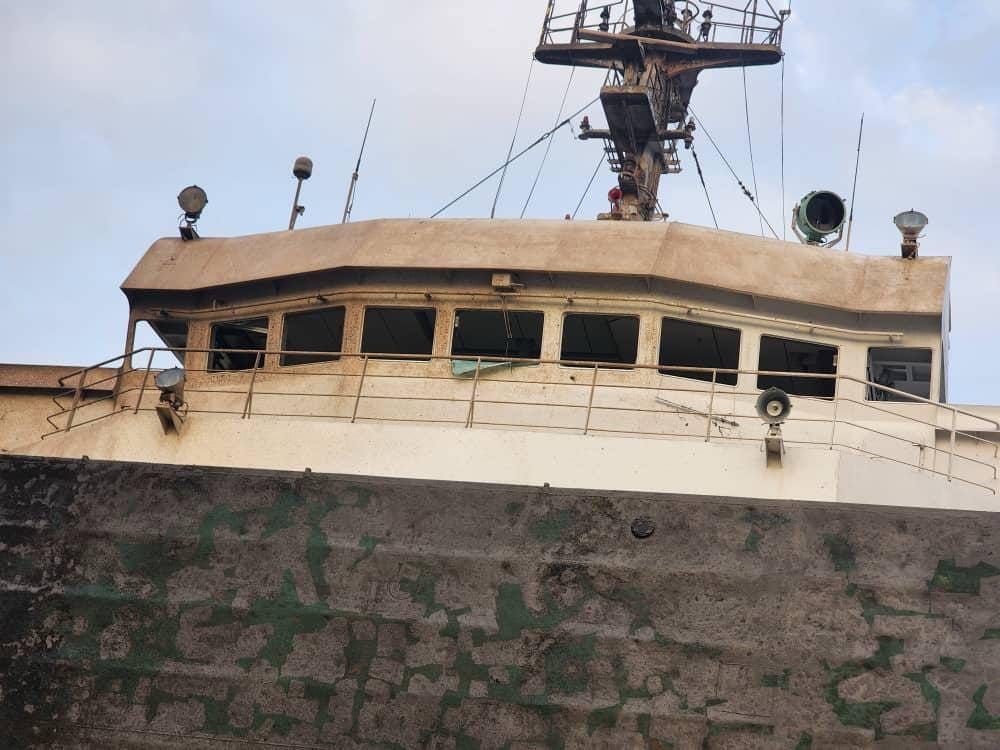At least six people were killed and 11 injured in a Russian missile strike on Ukraine’s southern Odesa Oblast on Oct. 9, as reported by regional governor Oleh Kiper. The attack targeted a Panama-flagged civilian container ship called Shui Spirit, according to Ukrainian Minister Oleksii Kuleba. Kuleba emphasized the importance of stopping such terror attacks and highlighted Ukraine’s role as a guarantor of food security. The victims of the attack were all Ukrainian citizens, with seven in serious condition receiving treatment in local hospitals. This incident was the third attack in four days, with authorities accusing Russia of attempting to disrupt Ukraine’s maritime food corridor established in August 2023.
Ukrainian Foreign Minister Andrii Sybiha called on all states and organizations to condemn Russian attacks and take action to stop the aggressor and ensure freedom of navigation and global food security. The incident on Oct. 9 also saw a Russian weapons depot storing North Korean shells and missiles set ablaze after a drone attack by Ukraine’s military. Additionally, a Ramstein-format meeting was postponed after U.S. President Biden canceled foreign visits. The ongoing battlefield situation has prompted calls for decisive action to end the war in 2025, according to Ukrainian President Zelensk.
The Russian missile strike on Odesa Oblast highlights the continued conflict between Russia and Ukraine, with civilian casualties and disruptions to Ukraine’s food security corridor. The involvement of North Korean weapons in Russian depots adds another layer of complexity to the situation. The postponement of diplomatic meetings due to President Biden’s scheduling changes indicates the importance of international efforts to address the conflict and bring about a resolution. President Zelensk’s calls for decisive action underscore the urgency of ending the war and restoring stability in the region.
The attack on the Panama-flagged civilian ship Shui Spirit raises concerns about the safety of maritime navigation in the Black Sea region. The deliberate targeting of civilian vessels by Russian forces demonstrates a blatant disregard for international norms and humanitarian principles. The victims of the attack, all Ukrainian citizens, highlight the human cost of the conflict and the need for swift international intervention to protect civilian lives. The repeated attacks in Odesa Oblast within a short timeframe underscore the escalating tensions between Russia and Ukraine.
The Ukrainian government’s response to the missile strike includes calls for a unified condemnation of Russian aggression and support for diplomatic efforts to halt further attacks. Minister Kuleba’s emphasis on Ukraine’s role in ensuring food security suggests the strategic importance of the maritime corridor targeted by Russian forces. The destruction of a weapons depot containing North Korean munitions adds a new dimension to the conflict and raises questions about the origin and supply of weapons in the region. President Zelensk’s urgency in calling for decisive action reflects the gravity of the situation and the need for immediate international engagement to end the war.
In conclusion, the Russian missile strike on Ukraine’s Odesa Oblast on Oct. 9 resulted in tragic casualties and heightened tensions in the region. The attack on a civilian vessel, the involvement of North Korean weapons, and the postponement of diplomatic meetings underscore the complex nature of the conflict and the urgent need for international intervention. The ongoing efforts by Ukrainian officials to seek condemnation of Russian aggression and support for diplomatic solutions reflect the country’s determination to defend its sovereignty and ensure the safety of its citizens. As the conflict continues to escalate, the international community must collaborate to bring about a peaceful resolution and prevent further loss of life.


